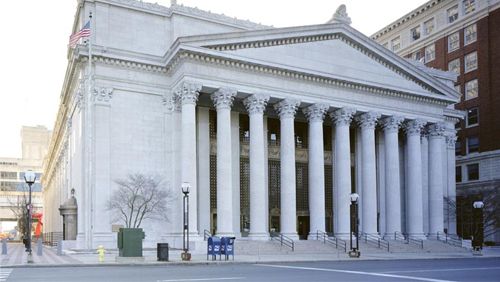Sports gambling is still one of the hottest topics among state legislations, with the odds of more adoption being seen in the US before the end of this year. In Connecticut, lawmakers have the ability to choose between two different bills, both of which would allow state tribes, and possibly others, to offer physical, as well as virtual, sportsbooks. If legislators can reach an agreement, the state is looking at an industry that could, according to some estimates, bring in as much as $20 million in annual revenue each year. The fate of the bills now rests with Connecticut’s Joint Committee on Public Safety and Security (JCPSS).
 One bill has been presented by the committee’s chair, Joe Verrengia. It would allow retail and mobile wagers at the state’s two tribal casinos, as well as off-track betting facilities and venues that offer state lottery sales, and licenses would initially cost $100,000 with another $750,000 due each five years as a renewal fee. However, commercial casinos, such as MGM, would be kept out of the activity. Based on its past, MGM would certainly be ready to fight the bill if it were to gain enough support.
One bill has been presented by the committee’s chair, Joe Verrengia. It would allow retail and mobile wagers at the state’s two tribal casinos, as well as off-track betting facilities and venues that offer state lottery sales, and licenses would initially cost $100,000 with another $750,000 due each five years as a renewal fee. However, commercial casinos, such as MGM, would be kept out of the activity. Based on its past, MGM would certainly be ready to fight the bill if it were to gain enough support.
The bill is designed to focus solely on sports gambling, while leaving the subject of casino expansion out. Verrengia is quoted by the Hartford Courant as stating, “[The bill is] narrow in scope. It doesn’t include all of these other things that tend to become complicated. When we’re talking about iGaming and casinos, that just brings up so many other question, and I don’t think we’ll be able to accomplish that in a short session.”
The chair of the Mashantucket Pequot Tribe, Rodney Butler, indicates that the tribe is amenable to sports gambling opportunities. However, it all comes down to what provisions are included in the bill. He explains, “We’d be happy to entertain sports betting legislation that recognizes our exclusivity provisions and long-time partnership with the state. However, the devil is always in the detail and that’s where the path forward has become encumbered in the past.”
The other bill, CT SB21 (in pdf), takes a slightly different approach. It would give exclusivity to the Mashantucket people, as well as to the Mohegan Tribe of Indians of Connecticut. It limits the activity to tribal land, but includes language to allow both retail and online sportsbooks. What isn’t clear is whether or not the online operations would include geofencing to restrict access just to those authorized locations.
That question, as well as many others, will be addressed when the JCPSS meets today. A hearing led by the committee is going to be conducted with stakeholders, and a separate, public hearing will be held on February 25. After that, lawmakers will have until June to either move forward or scrap the plans completely, depending on who gains the most support.
If it’s up to Connecticut Governor Ned Lamont, moving forward would be the right response. He states, “Let’s keep it simple. Sports betting, I think, is something where I think we can reach broad agreement going forward.”
